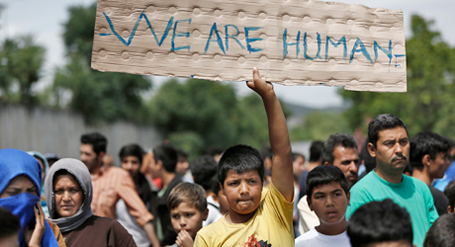
Migration and Human Rights
An estimated 258 million people, approximately 3 per cent of the world’s population, currently live outside their country of origin, many of whose migration is characterised by varying degrees of compulsion. Notwithstanding that many migrant choose to leave their countries of origin each year, an increasing number of migrants are forced to leave their homes for a complex combination of reasons, including poverty, lack of access to healthcare, education, water, food, housing, and the consequences of environmental degradation and climate change, as well as the more ‘traditional’ drivers of forced displacement such as persecution and conflict.
While migration is a positive and empowering experience for many, it is increasingly clear that a lack of human rights-based migration governance at the global, regional and national levels is leading to the routine violation of migrants’ rights in transit, at international borders, and in the countries they migrate to.
While migrants are not inherently vulnerable, they can be vulnerable to human rights violations. Migrants in an irregular situation tend to be disproportionately vulnerable to discrimination, exploitation and marginalization, often living and working in the shadows, afraid to complain, and denied their human rights and fundamental freedoms.
Human rights violations against migrants can include a denial of civil and political rights such as arbitrary detention, torture, or a lack of due process, as well as economic, social and cultural rights such as the rights to health, housing or education. The denial of migrants’ rights is often closely linked to discriminatory laws and to deep-seated attitudes of prejudice or xenophobia.
In this context, OHCHR works to promote, protect and fulfill the human rights of all migrants, regardless of their status, with a particular focus on those women, men and children who are most marginalized and at risk of human rights violations. OHCHR promotes a human rights-based approach to migration, which places the migrant at the center of migration policies and governance, and seeks to ensure that migrants are included in all relevant national action plans and strategies, such as plans on the provision of public housing or national strategies to combat racism and xenophobia.
Source: Office of the High Commissioner for Human Rights
